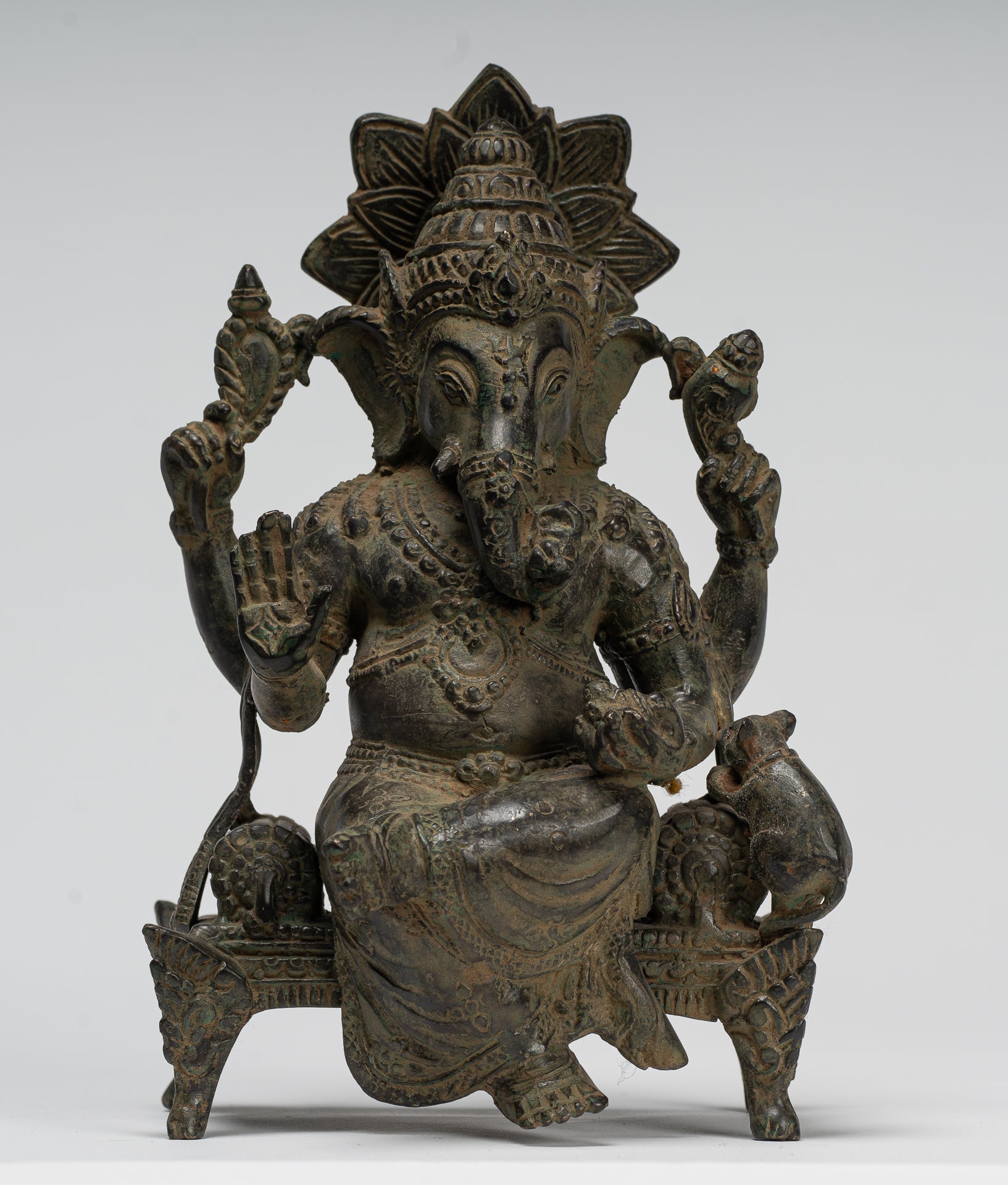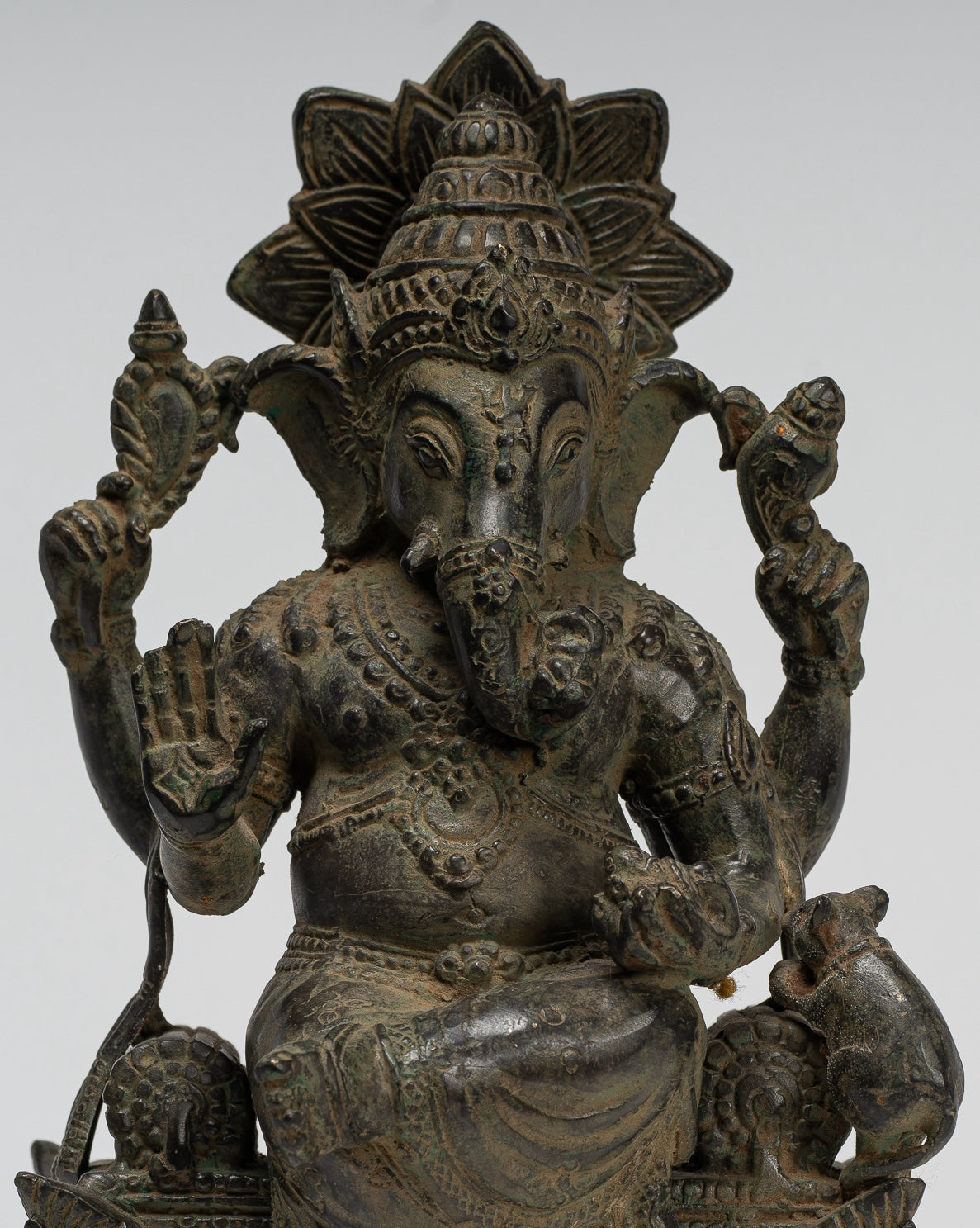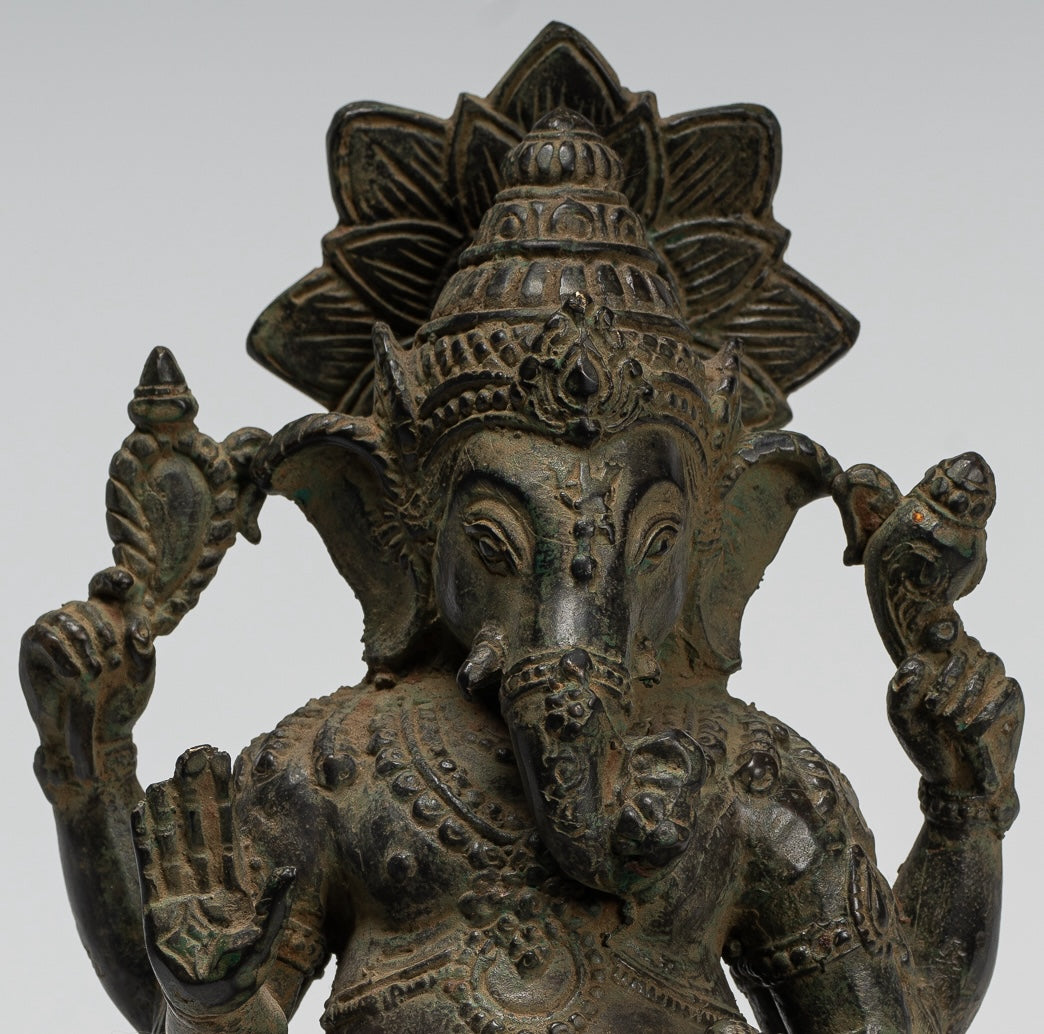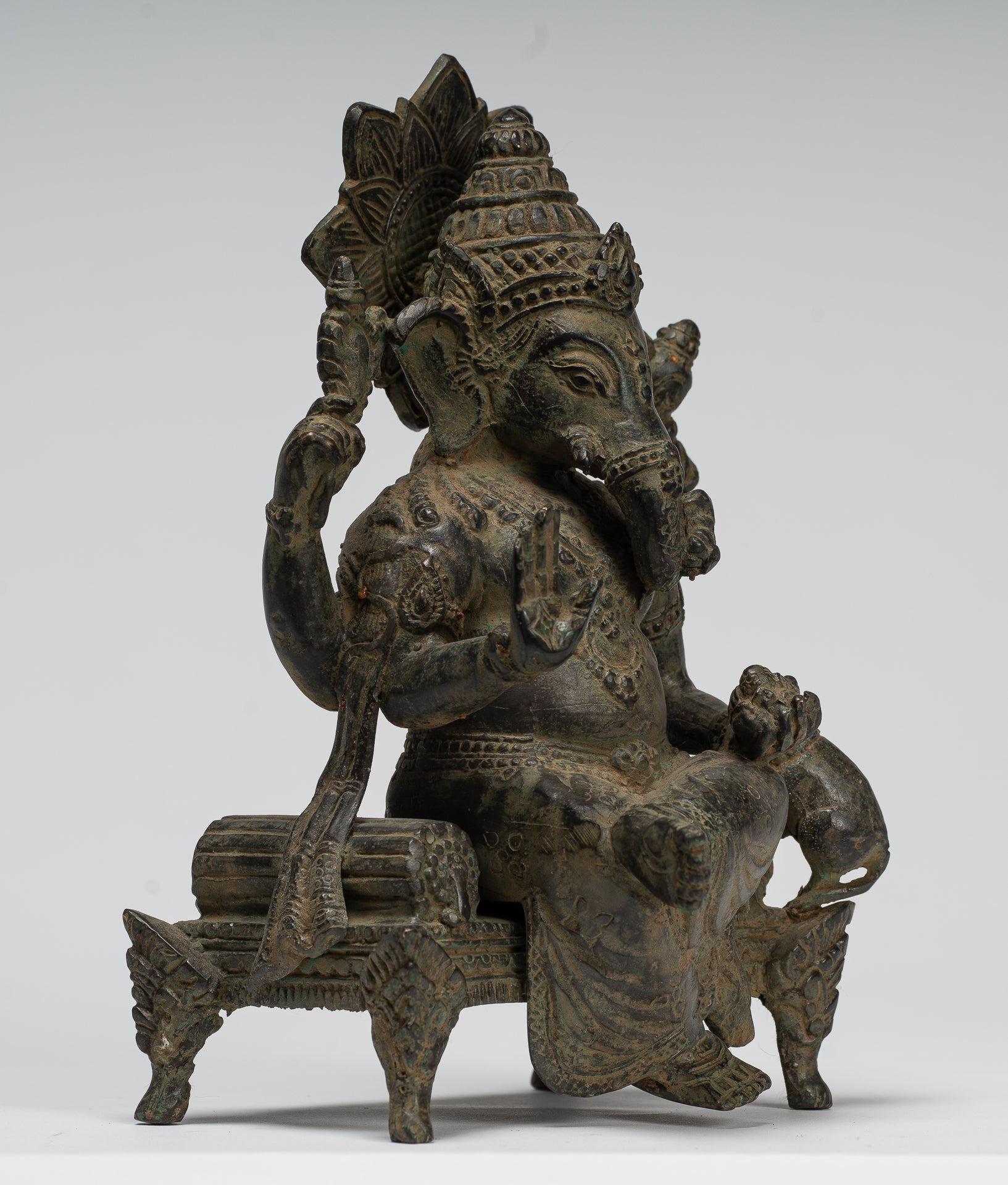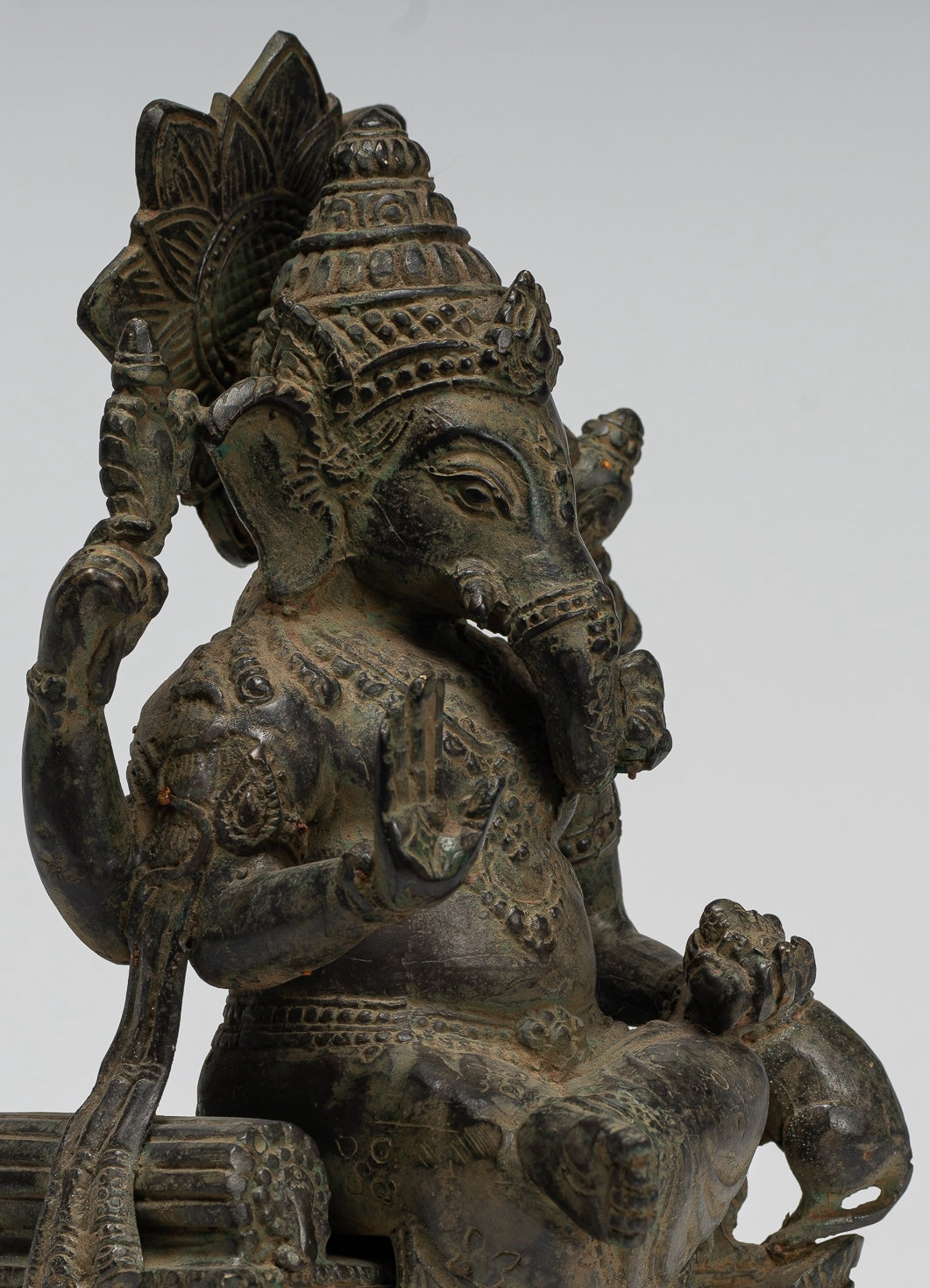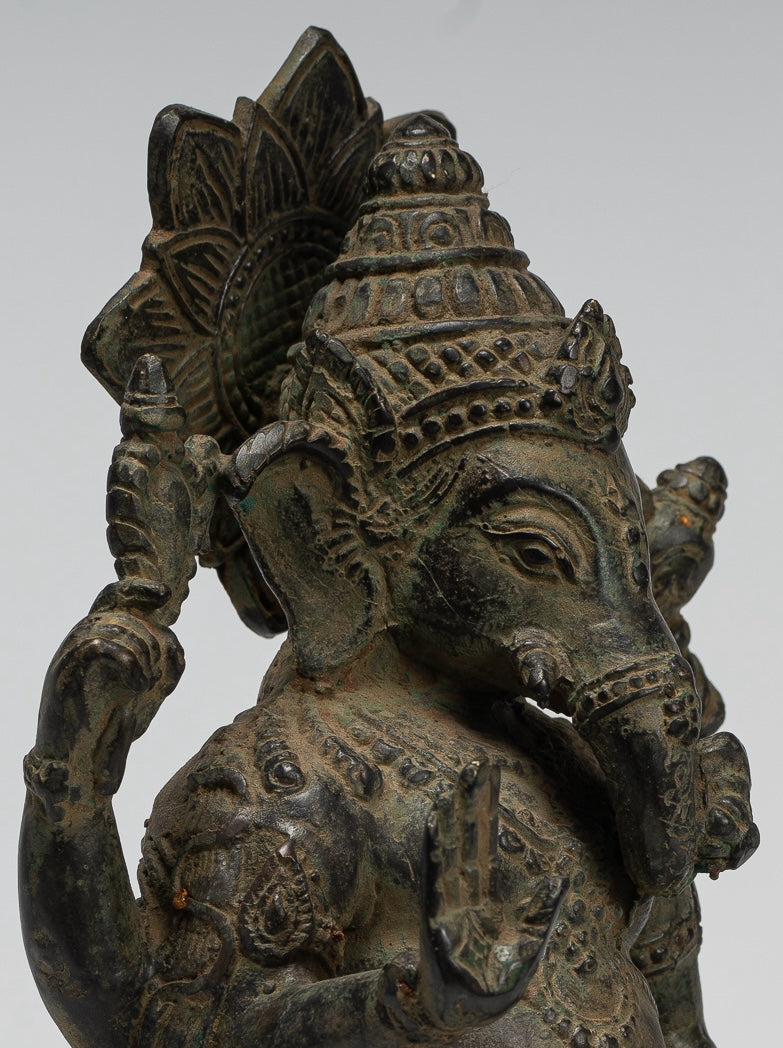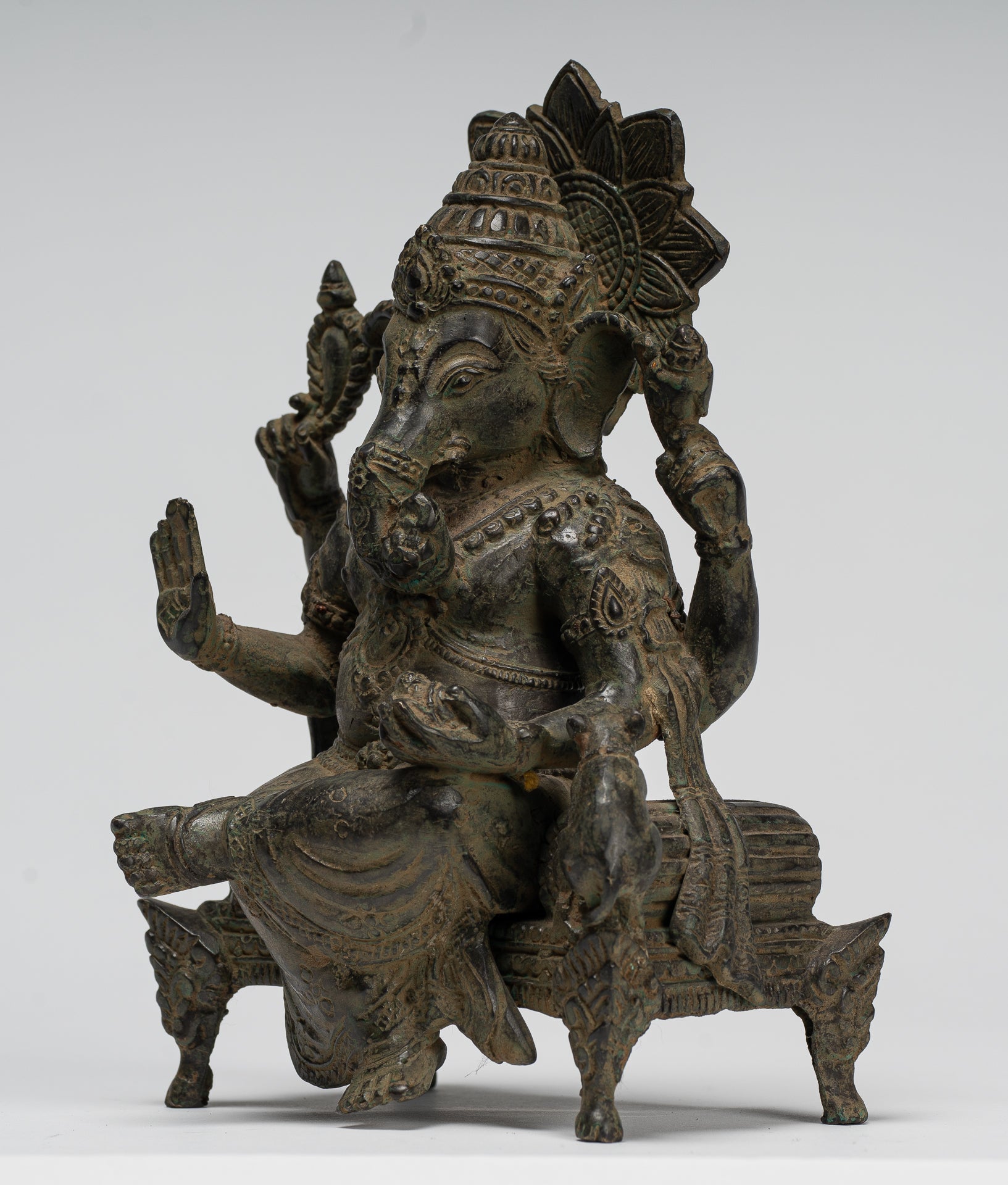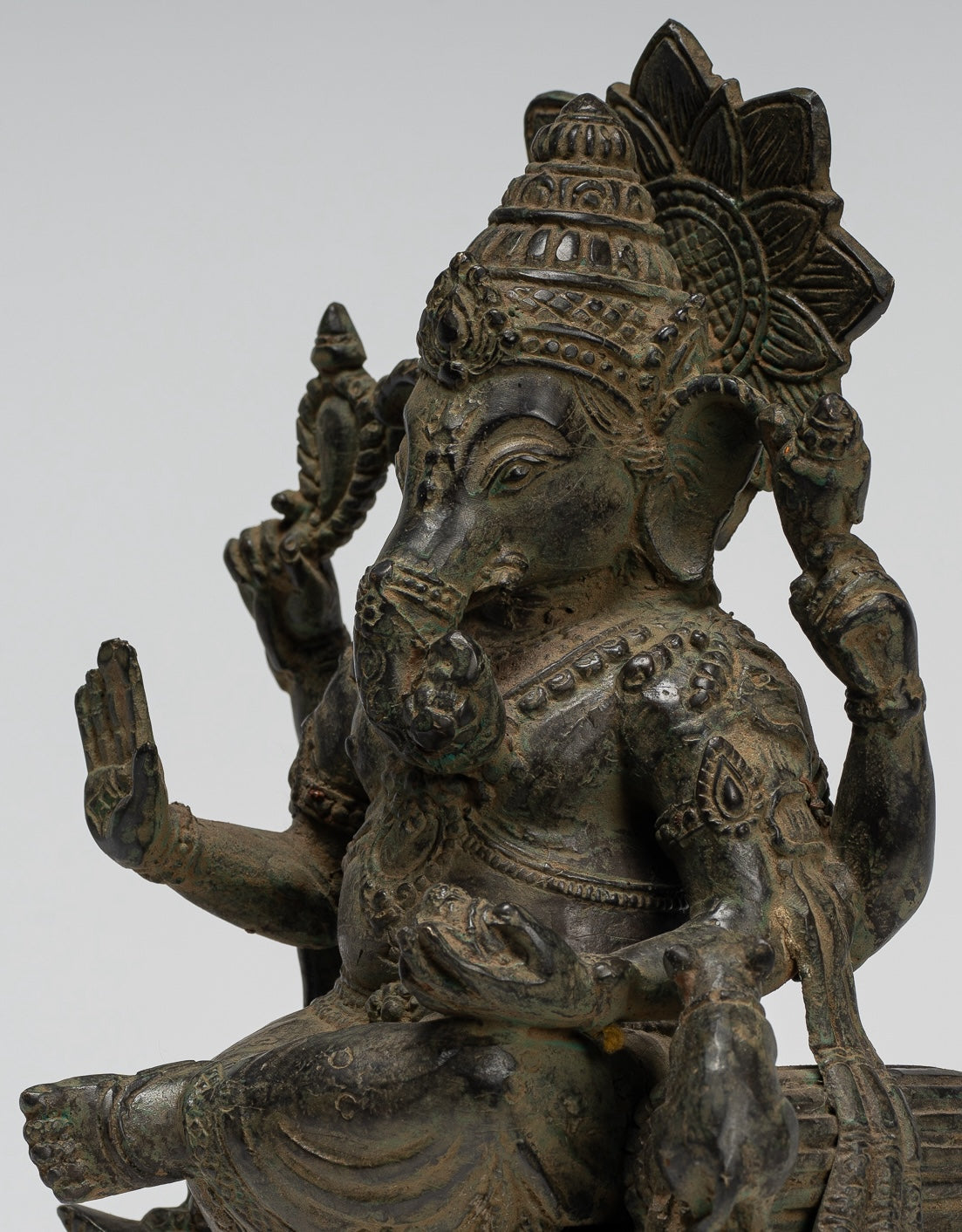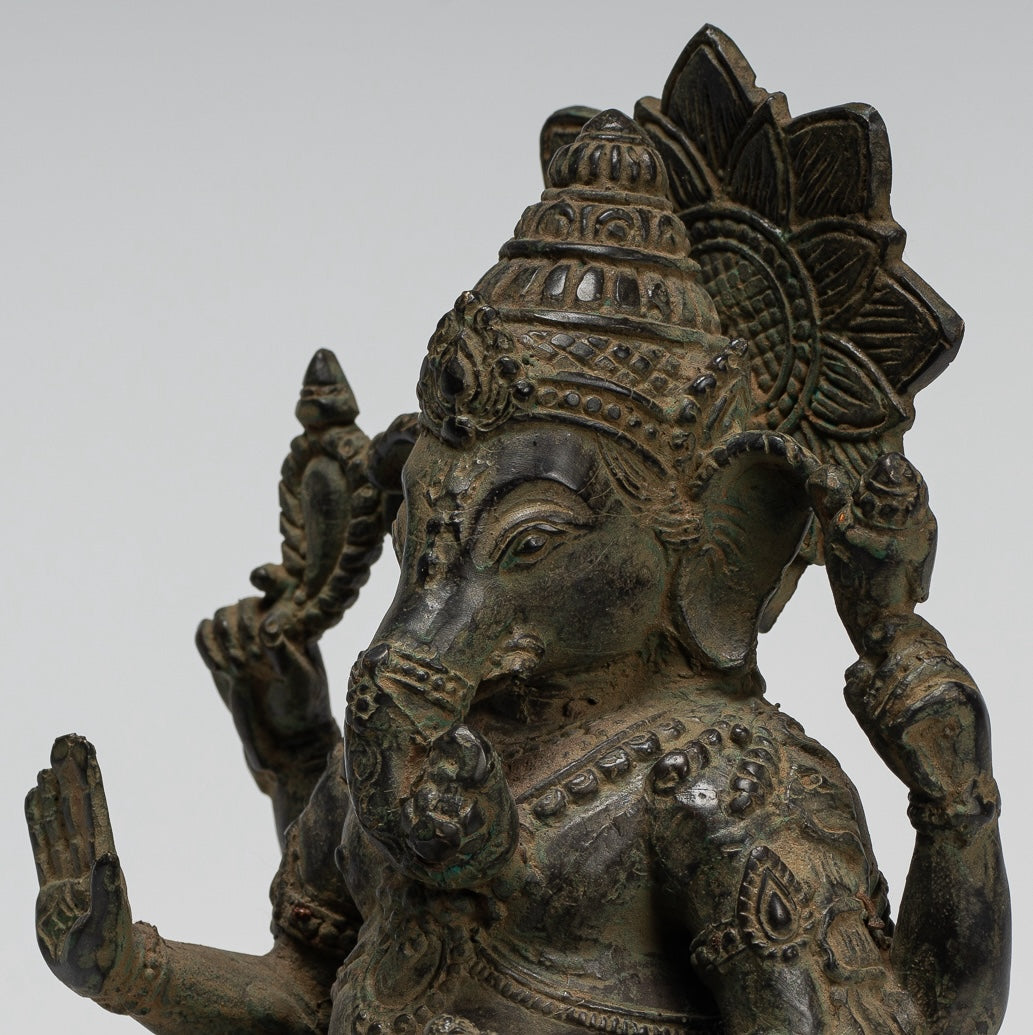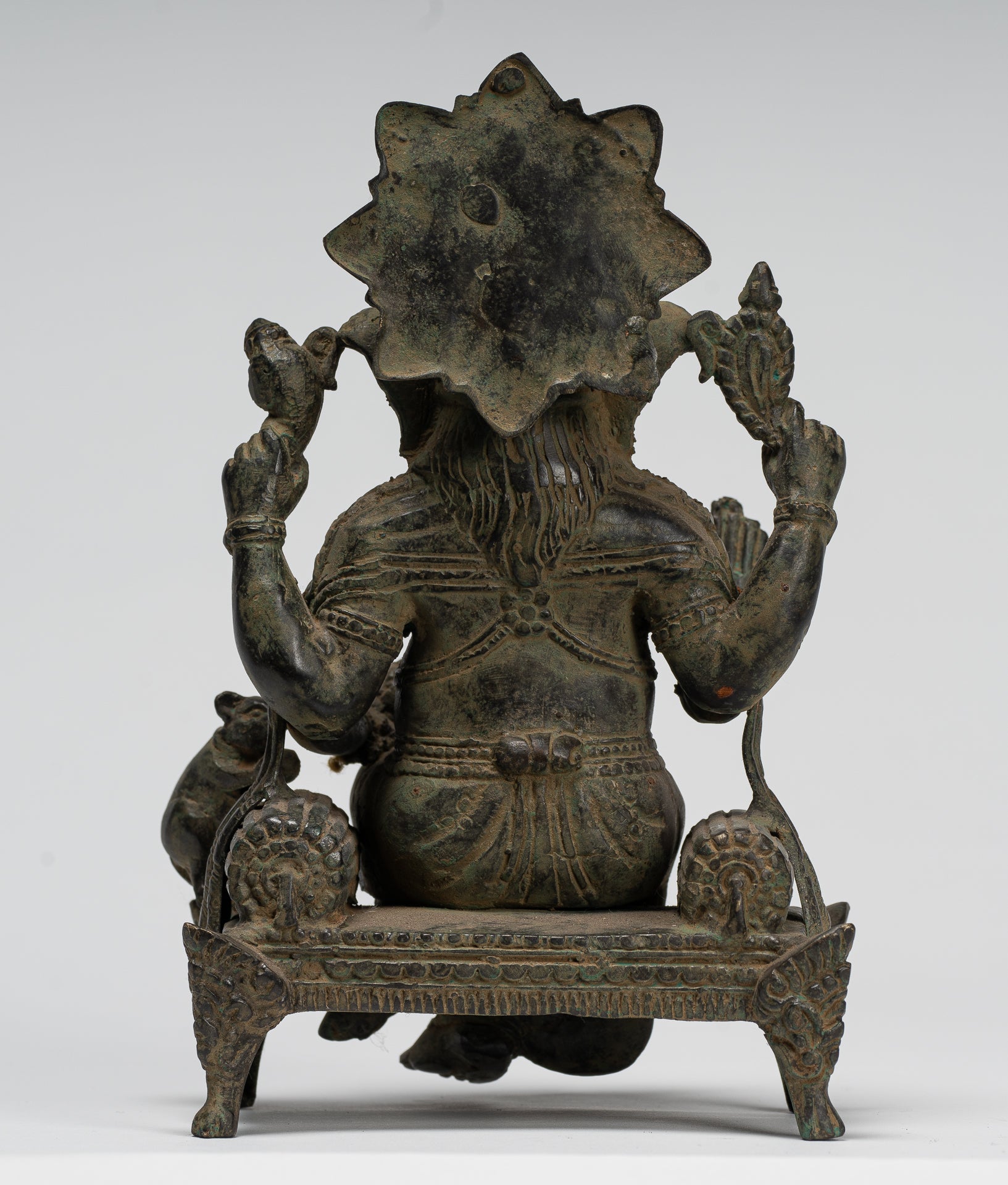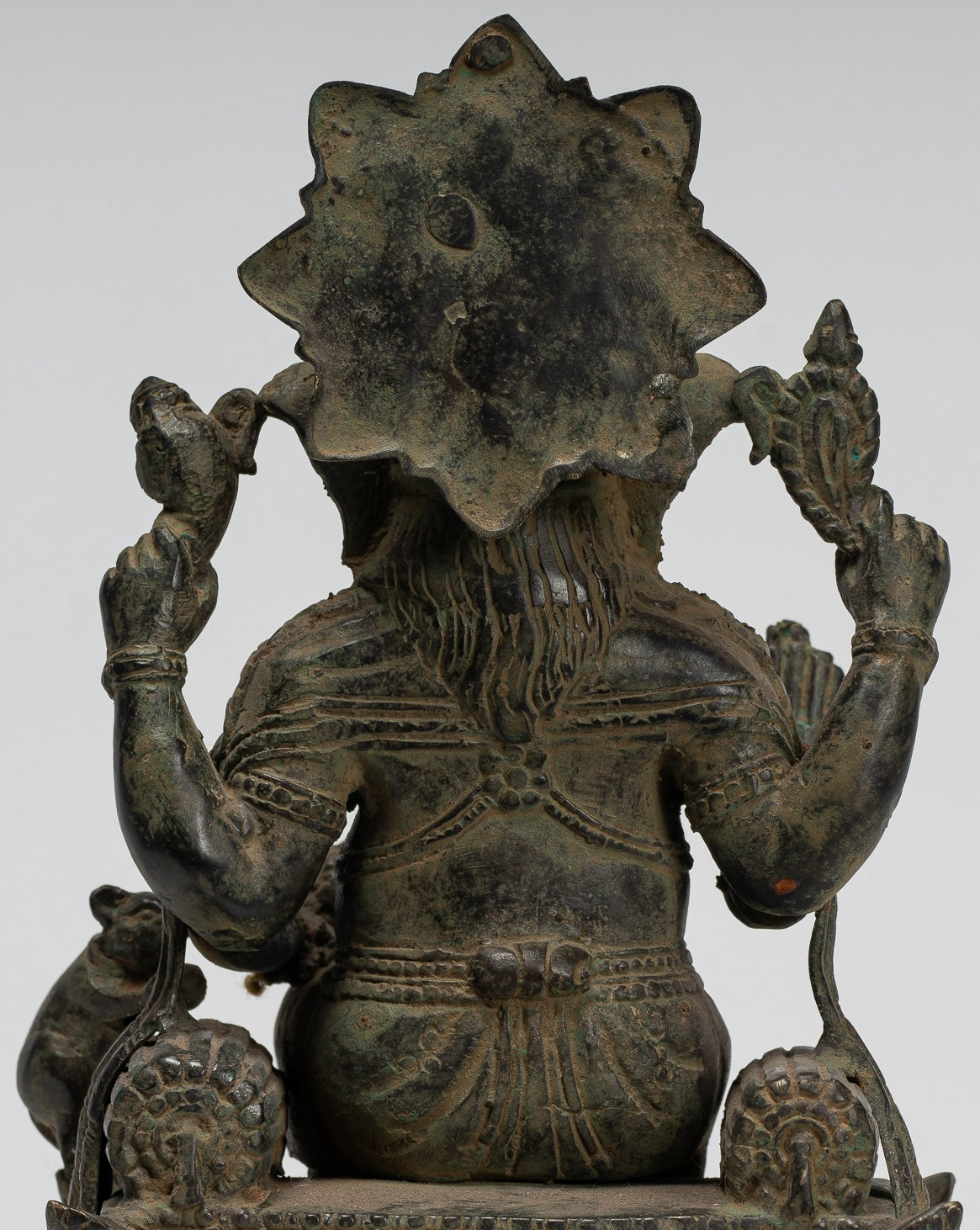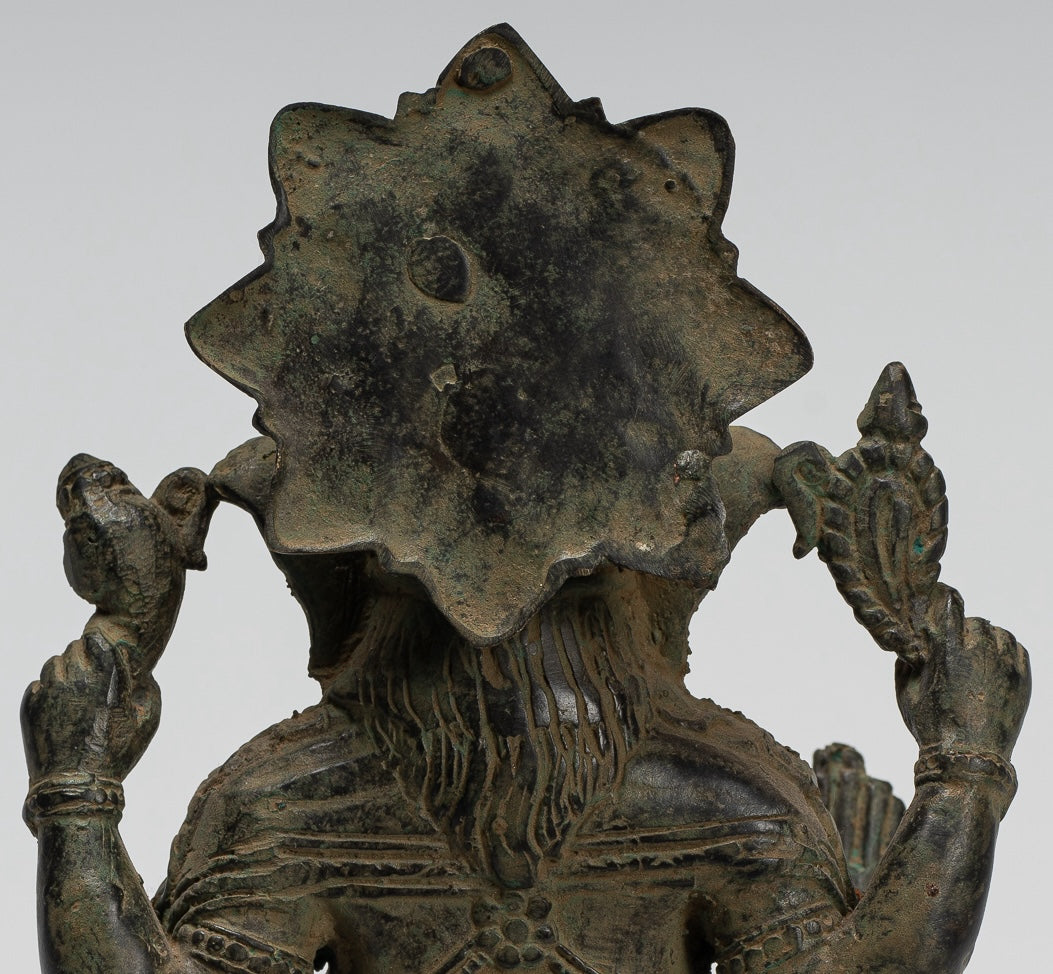-
Antique Javanese Style Bronze Seated Indonesian Ganesha Statue - 20cm/8"
Measures (Height) 20cm/8"
Antique Javanese style bronze seated Ganesha from Indonesia.
Ganesha is seated on a cushioned seat. His mount, a mouse, to the left of him. A lotus petal shaped aureole, can be seen behind him, confirming his divinity.
The distinctive patina of the piece is particularly delightful.
Ganesha is the elephant headed son of Shiva. He holds his axe, conch shell and sweetmeats in his hands. His lower left hand is held in the Abhaya or protection pose. The Abhaya mudra is performed in place of a physical item.
This raised hand position represents a blessing over all. The Abhaya mudra communicates protection, care and guidance through challenging obstacles, which are all given without judgement. Whilst an elephant-headed deity wielding an axe may inspire images of a belligerent warhead, rest assured this item represents something far more encouraging. Instead, the axe is rooted in metaphor and promotes the idea that we should cut away the obstacles before us. In destroying our vices and obstacles, be they certain hurdles in our lives or more abstract feelings such as jealousy and anger, we can source new beginnings and cultivate a new approach to the things that have been worrying us.
The conch shell is well-recognised today as the musical instrument of war, with movie characters always seeming to be well seasoned players of its booming notes; it is only a shame that conductors fail to recognise its place in the modern orchestra. However, our association with the conch and war are not misplaced, as ancient Indians used to blow the shell to indicate the commence of any conflict, religious rites or event. The conch therefore symbolises victory and accomplishment. When Ganesha is depicted holding a conch it thus demonstrates his encouragement of triumph in war and fulfilment in life.
Ganesha also holds laddus, the name for Indian sweetmeats. Whilst some may interpret this as Ganesha simply having a sweet tooth or a (relatable) penchant for candy, it is no surprise that the sweet delicacies carry further meaning. These tasty treats represent the reward for a wisely-led life and the eternal sweetness that comes from a fulfilled experience. Dentists around the world will be delighted to hear that Ganesha is never depicted actually eating the sweetmeats, but this item of the deity does also show his parallels with everyday human life.
This relates to Ganesha's status as a Vedic God, which means he does not forget even those who are not his devotees and instead looks out for everyone. This is communicated through his depiction as always looking upwards or at eye-level, as he is surveying all human life and is therefore not solely focussed on those praying to him.
The direction of Ganesha's trunk has symbolic meaning. Here the trunk turns to Ganesha's left. This signifies the direction for success in the world. It is a position associated with grihastas, or householders. In his early forms in India, Ganesha was associated with fertility.
Later he became widely revered as the Remover of Obstacles and more generally as Lord of Beginnings and Lord of Obstacles, patron of arts and sciences and the deity of intellect and wisdom.
One of the most recognizable of the Asian deities this representation of Ganesha is sure to enlighten your home with endlessly timeless style.
SATISFACTION GUARANTEE - We have been offering SE Asian Art for many years and are proud of the reputation we have developed for fair and honest listings. However, if for any reason, whatsoever, you are unhappy with your purchase please just let us know and we will provide a full refund. We want you to be 100% happy with your purchase.
-
The majority of orders will be shipped with DHL. This is a secure, express and fully tracked service.
Items less than 2Kg we typically ship using Royal Mail.
Once we receive your order we try to ship all orders the same or next working day.
Large and/or fragile pieces requiring palletising, specialist crating and/or extra packaging may take a little longer. Palletised shipments will be delivered curbside.
All orders over 35 GBP will be shipped free of charge.

-
We genuinely hope that all purchases delight.
However, if they do not, regardless of reason, we will refund all orders upon receipt of the unwanted item. Just notify us within 14 days of receiving your order that you wish to make a return and send the piece back to us with 30 days of delivery.
The nature of divinity in Hinduism and Buddhism profoundly shapes how practitioners approach spiritual life, ritual, and liberation.
Hindu practice integrates devotion to many gods or ultimately one supreme reality, with ritual, worship, and philosophy as bridges to transcendence.


